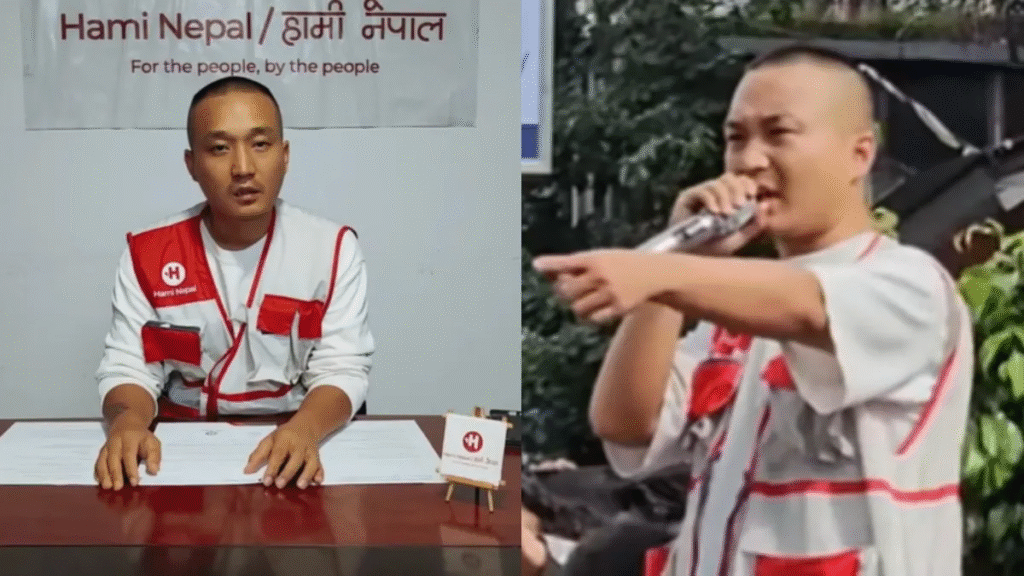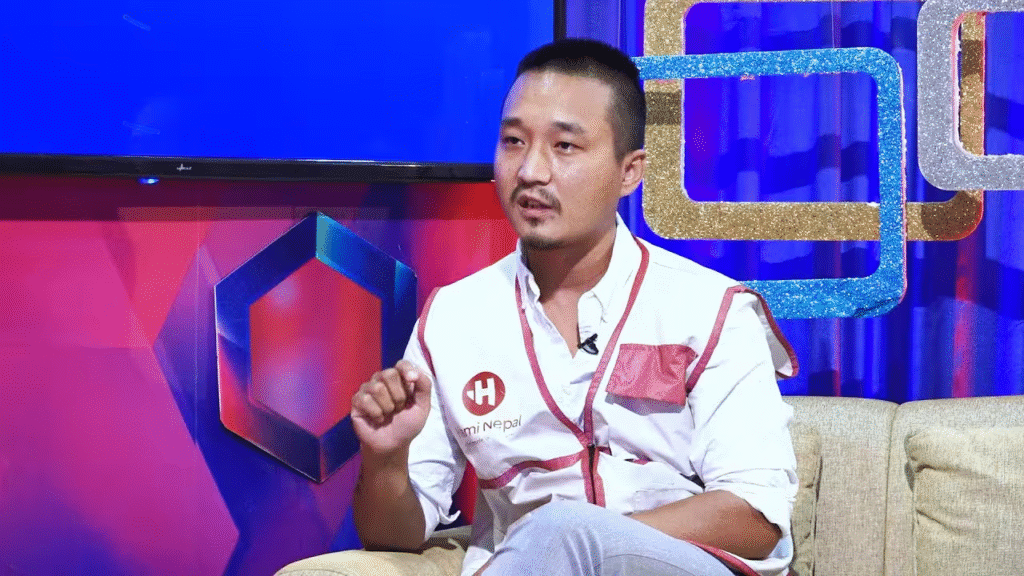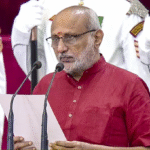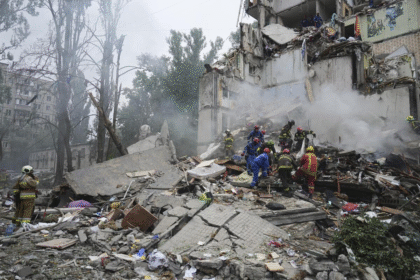Gen Z Leader Sudan Gurung 2025: Breaks Down in Tears During Emotional Media Address in Kathmandu
Gen Z leader Sudan Gurung breaks down in tears during an emotional 2025 media address in Kathmandu, as his heartfelt speech garners over 1.2M views online
In a deeply moving moment that has resonated across Nepal and beyond, Gen Z political leader Sudan Gurung broke down in tears during an emotional media address in Kathmandu on Thursday. The press briefing, initially scheduled to outline his party’s vision for youth empowerment and social reforms, quickly transformed into a moment of vulnerability and raw honesty. Within hours, video clips of the event went viral across social media platforms, attracting more than 1.2 million views and sparking nationwide conversations about leadership, emotional strength, and the burdens of public life.
Sudan Gurung, only 27, has emerged as one of Nepal’s most dynamic youth leaders. Representing a new wave of Gen Z politicians, he has gained prominence by voicing concerns over unemployment, climate change, digital rights, and the aspirations of young Nepalis seeking opportunities in a rapidly changing world.

Born and raised in Pokhara before shifting to Kathmandu for higher education, Gurung represents a generation caught between tradition and modernity. His rise in politics has been fueled by grassroots campaigning, digital activism, and a reputation for connecting authentically with the frustrations of Nepal’s youth.
The press conference, held at a packed hall in Kathmandu, began on a hopeful note. Gurung outlined his plans to push for new education reforms, boost digital entrepreneurship, and improve transparency in governance. However, midway through his speech, the young leader visibly struggled to control his emotions.
As cameras rolled, Gurung paused, wiped away tears, and spoke directly from the heart:
“I have carried the hopes of millions of young Nepalis on my shoulders. But there are days when the weight of expectations feels overwhelming. We want to change Nepal for the better, but sometimes the journey feels lonely and impossible.”
The unexpected breakdown left journalists stunned, with some moved to silence. What could have been perceived as weakness quickly transformed into a powerful display of authenticity.
Within minutes of the address, clips began circulating across TikTok, Instagram, and X (formerly Twitter). Hashtags such as #SudanGurung, #GenZLeader, and #KathmanduAddress began trending, with young Nepalis rallying around the emotional speech.

Supporters praised Gurung for showing courage in revealing his vulnerabilities, arguing that his tears reflected the frustrations of an entire generation. Memes, tribute videos, and heartfelt posts flooded timelines, with many calling the moment a “turning point” in how leadership is perceived in Nepal.
“When Sudan Gurung cried, he wasn’t just crying for himself—he was crying for all of us. For every young Nepali struggling with unemployment, broken promises, and fading hope.”
While Gurung’s supporters hailed his emotional honesty, reactions from political rivals were mixed. Some veteran politicians criticized the young leader, suggesting that breaking down in public reflected a lack of preparedness for the pressures of leadership.
A senior parliamentarian from a rival party remarked:
“Leadership requires strength, composure, and resilience. Nepal’s challenges cannot be solved by tears.”
However, others countered that Gurung’s emotional speech demonstrated a refreshing departure from the stoic, impersonal approach of older politicians. Even within rival camps, several acknowledged the growing influence of Gen Z voices in shaping the country’s political discourse.
Analysts argue that Sudan Gurung’s tears reflect deeper generational anxieties. Nepal’s Gen Z faces unique challenges: limited job opportunities, political instability, outmigration, and the constant pull between traditional expectations and modern aspirations. Gurung, by breaking down on camera, symbolized these struggles in a way that statistics and policies alone could not.

Dr. Anjali Koirala, a sociologist from Tribhuvan University, observed:
“What we saw was not weakness but honesty. Gen Z is redefining leadership. For them, authenticity matters more than polished speeches. Sudan Gurung connected with millions because he mirrored their own frustrations.”
On the streets of Kathmandu, the emotional address quickly became a subject of discussion. University students, shopkeepers, and taxi drivers weighed in on the viral moment.
Rita Shrestha, a 22-year-old economics student, said:
“For once, I saw a leader who is human. We’re tired of speeches full of empty promises. Sudan Gurung showed us his heart, and that means more than politics.”
Meanwhile, youth groups in Pokhara and Chitwan organized small gatherings, projecting Gurung’s speech on screens and discussing the issues he raised. For many, his vulnerability became a rallying point for solidarity and renewed political activism.
The story also reached Nepali diaspora communities abroad, from Australia to the United States. Many young Nepalis working overseas shared the video, reflecting on how Gurung’s message resonated with their struggles of identity and belonging.
International outlets began covering the story as an example of how younger leaders across the world are challenging conventional notions of authority. Commentators noted similarities between Gurung and other Gen Z figures globally who emphasize mental health, openness, and empathy in leadership.
Despite the viral sympathy, Gurung faces daunting challenges. His critics will continue to question whether emotional vulnerability translates into political effectiveness. As he prepares for upcoming party campaigns and parliamentary debates, the young leader must balance authenticity with resilience.
Political strategists believe that Gurung’s next moves will be crucial. If he successfully channels the momentum from this viral moment into concrete policy advocacy, he could cement his position as the face of Nepal’s new generation of leaders. If not, his detractors may dismiss the emotional address as a fleeting spectacle.
Read Also : Historic Milestone 2025: C P Radhakrishnan Sworn In as 15th Vice President of India at Grand Ceremony








